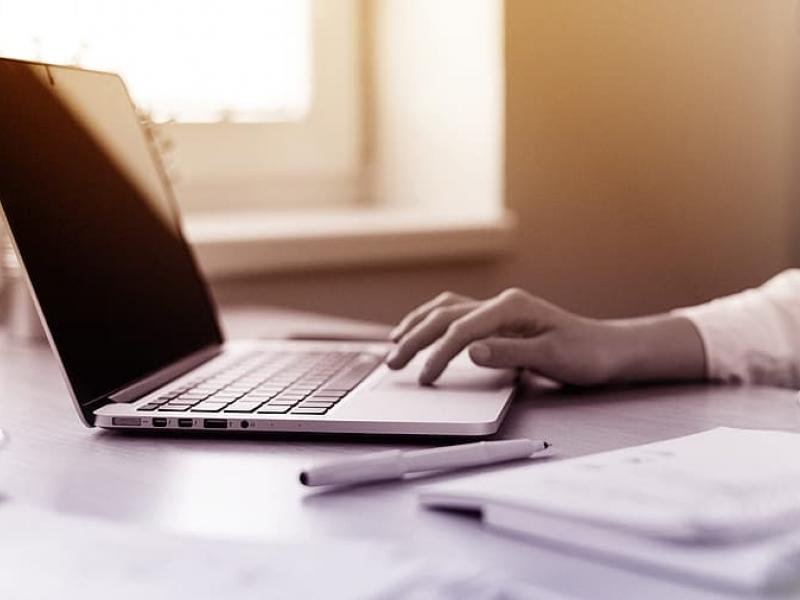
Year Published:
Topics:
Region:
Reaching SRLs During COVID: Outreach Campaigns Leverage Social Media, Ad Spots, and Traditional Print to Ensure SRLs Know Self-Help Support Is Still Available (News 2021)
With in-person support for SRLs limited or halted due to COVID, a significant number of self-help services are continuing to serve the public even when their court might be closed. The challenge in this circumstance becomes how to tell the public that self-help is available when the court says it’s closed. Outreach strategies are particularly critical at a time when more people than ever find themselves in need of legal guidance on COVID related issues ranging from tenants’ rights to unemployment law. While some access to justice leaders are reaching their states via newspaper features that advertise self-help lines and remote centers, others are turning to social media to share COVID specific guides and innovative video chats.
In Georgia, courts have posted information on courthouse doors to offer SRLs information on self-help resources and what courts are doing under the state’s current stay at home orders. Instructions have also been circulated, including on Georgia Courts’ Twitter, for a new e-filing option available to SRLs during COVID. Additionally, many Georgia law libraries are open via phone for support, and Georgia Legal Aid’s COVID specific legal Q+A guide is shared widely across social media platforms.
With Facebook use up significantly due to nationwide stay at home orders, Southeast Louisiana Legal Services is reaching SRLs on the social platform with an impressive breadth of content. From COVID specific guides and COVID related news stories with actionable legal support links to reminders about their COVID legal hotline, SLLS’ information reaches SRLs daily through a variety of posts. Most innovative, and certainly worth exploration by others, is the organization’s Facebook Live sessions focused on legal areas of concern during COVID including homeownership and renters’ rights.
Before the days of COVID, the Maryland Courts Self-Help Center led a robust and inspiring multi-month promotional campaign aimed at ensuring strong public awareness of the state’s self-help services. Ad spots for the court’s call centers, language services, and self-help video library played on TV, at the MVA (Motorvehicle Administration), and in court waiting areas, where courts could line up a mix of self-help videos and positive court stories produced by the Center’s communications staff. In addition, print and digital ads were run. This awareness campaign, in addition to previous outreach work funded by the Self-Help Center’s marketing budget, successfully amplified public understanding of self-help services across Maryland before COVID’s challenges. The Court continues to run ad spots on public TV and plans to run radio spots promoting its Self-Help Call Center now that walk-in centers are closed.
Pamela Ortiz, Director of the Maryland Court’s Access to Justice Department said: “It is our goal that all Marylanders know that if they need help with a civil legal problem, they can begin at a court-based self-help center. During the health emergency, the statewide call center is fully operational. Marylanders can call or chat to speak directly with an attorney.” Maryland’s pre-COVID effort to ensure the general public knew the Self-Help Center well should serve as a model for self-help centers across the country. This baseline public knowledge of SRL resources enabled the Self-Help Center to take a proactive rather than a reactive stance when COVID rapidly impacted court operations. Thanks to the Self-Help Center’s impressive awareness campaign, it’s probable many Marylanders knew where to find SRL resources as soon as COVID related issues like unemployment and eviction surfaced.
In Florida, Coast to Coast Legal Aid of South Florida, Inc. launched “Fridays with Friends” early in the pandemic to have local community partners talk about their services and how to access them on FB live. CCLA provided community partners with updates on their services, contact information, and other important info. These generally had 100-300+ unique views. They hosted a series of Virtual Clinics Live on CCLA Facebook page to reach more clients since in person was not possible. These live sessions had staff from CCLA and pro bono attorneys to discuss information and a local community partner org provided a “host”. Some of these have in excess of 1000+ unique views. Most recently, CCLA launched Legal Learning for every Thursday to discuss a specific legal topic of need/interest at this time. These are rolling out, but they are gaining in popularity. The CCLA Facebook page went from barely 300 followers to over 1000 without any paid ads (all organic outreach).
You can also find recordings of the CCLA Virtual Clinics on the CCLA YouTube Channel.
If you have other innovative outreach strategies, please share them with [email protected] and we will share with the community.